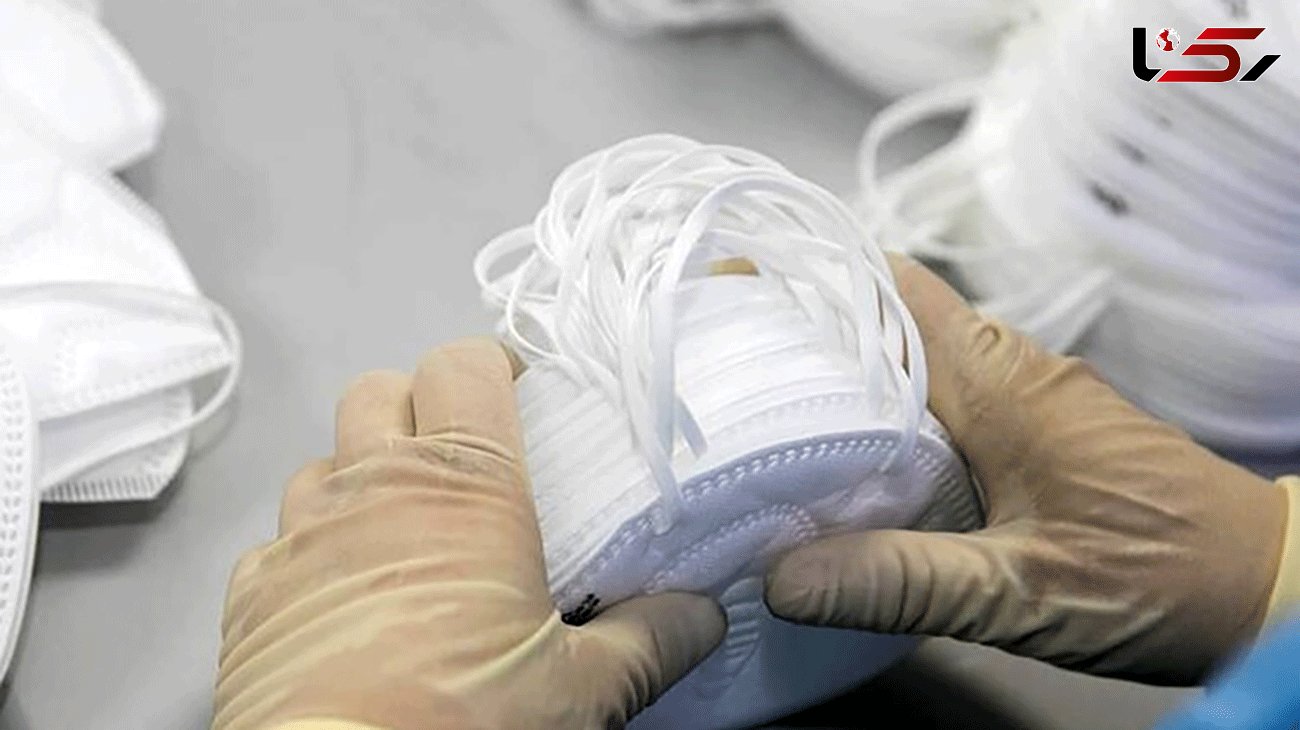Iranian researchers produce nano-mask with 99.9% lethality to coronavirus
rokna: Researchers at the Institute of Materials and Energy affiliated with the Ministry of Science, produced nano face masks that can kill coronavirus by 99.9 percent.

According to ROKNA, Abuzar Masoudi, a faculty member of the Materials and Energy Research Institute, said that since the fibers of the fabric are hydrophilic. Therefore, the behavior of the virus is different, so different masks have been offered, including the FFP1 mask, which prevents up to 95 percent of the virus and up to 80 percent of the bacteria. While the N95 mask resists the virus up to 95 percent, and up to 100 percent of the bacteria.
This is while sponge and cloth masks prevent up to 50 percent of bacteria from entering the body, and are not able to fight the virus.
According to Masoudi, this project is planned to enter the industrial production phase.
Health Minister Saeed Namaki said on Tuesday that Iran will start testing its homegrown coronavirus vaccine on humans in early November.
If the disease and the vaccine do not undergo fundamental changes and transformations, we have developed good methods for making the vaccine and informed the World Health Organization about this, he stated.
Ismail Ghaderifar, head of the center for strategic technologies development of the vice presidency of science and technology, has said that under sanctions in the most difficult conditions, Iran combatted the pandemic and knowledge-based companies could make the country independent. Moreover, they managed to produce pharmaceutical items required by the country's health system.
Mehdi Kashmiri, director for technology and planning at the science ministry, said in July that about 450 knowledge-based companies were active in the country for manufacturing protective equipment and treatment products to fight the coronavirus.
Production of more than one million face masks per day, production of more than 1.5 liters of disinfectants per day, diagnostic kits, non-contact thermometers, protective clothing, ventilator are among the produces manufactured by these companies, he added.
Iranian-made innovative products in the field of diagnosis, screening, and fighting coronavirus were also unveiled to combat the disease, namely, ozone generator, nanotechnology face shields, disinfection gate, and molecular COVID-19 diagnostic kits.
COVID-19 new cases hit daily records high in Iran
In the press briefing on Wednesday, Health Ministry spokesperson Sima-Sadat Lari confirmed 5,616 new cases of COVID-19 infection, raising the total number of infections to 545,286. She added that 438,709 patients have so far recovered, but 4,861 still remain in critical conditions of the disease.
In the past 24 hours, 312 patients have lost their lives, bringing the total number of deaths to 31,346, she added.
Lari noted that so far 4,599,554 COVID-19 tests have been conducted across the country.
She said the high-risk “red” zones include provinces of Tehran, Isfahan, Qom, East Azarbaijan, South Khorasan, Semnan, Qazvin, Lorestan, Ardebil, Khuzestan, Kermanshah, Kohgiluyeh-Boyerahmad, Gilan, Bushehr, Zanjan, Ilam, Khorasan Razavi, Mazandaran, Chaharmahal-Bakhtiari, Alborz, West Azarbaijan, Markazi, Kerman, North Khorasan, Hamedan, Yazd, and Kordestan.
The provinces of Hormozgan, Fars, and Golestan and Sistan-Baluchestan are also on alert.

Send Comments